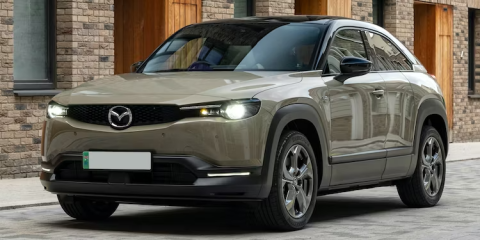Mazda USA’s BEV sales remain low in April 2023
Mazda North American Operations (MNAO), the North American arm of Japanese automobile giant Mazda Motor Corporation, has reported a considerable growth in its US sales amid its accelerating shift from ICEs to BEVs.
The Japanese manufacturer is one of the few premium brands that have been unable to sort out their electrification strategies to achieve at least a few per cent BEV share in their total sales.
However, the manufacturer is aware of the fact that such a state can't be allowed to prolong forever. Mazda is planning to produce and launch more electric vehicles in the years to come.
Mazda is obviously lagging far behind many of its competitors. For the time being, the manufacturer’s representatives believe that long-range BEVs are not sustainable.
In April this year, Mazda’s sales in the U.S. market increased 7.5 per cent year-over-year to 32,351 units. During the first four months (January to April) of the year, the company sold 120,735 units in the American market, which also represents an increase of 7.5 per cent from the corresponding period of last year.
It was actually the company’s best result in the last many months, but still 78 per cent down from the same period of 2022. In other words, the company is doing quite well in the ICE segment, but we can’t say that about its BEV sales.
Last month, the Japanese brand sold a total of 17 units of the all-electric Mazda MX-30 crossover SUV. The figure is obviously very small. It represents a decline of 78 per cent year-over-year and accounted for just a marginal 0.1 per cent of the brand’s total sales volume in the month under review. Still, it was the best month for the 2023 Mazda MX-30 in as many as 10 months.
In the January through April period, the company sold 32 units of the MX-30 in the U.S., 88 per cent less year-over-year. The model is actually available only in California.
While we don't know whether the low sales of the electric SUV relate only to limited supply, it is an open secret that demand for this model is quite weak. One of the several reasons for the model’s low demand is its ineligibility for the $7,500 federal tax credit because it is an imported model. Priced at an MSRP of $34,110 (excluding destination charge of $1,275), the SUV is not expected to make any splash with becoming eligible for the $7,500 federal tax credit.
